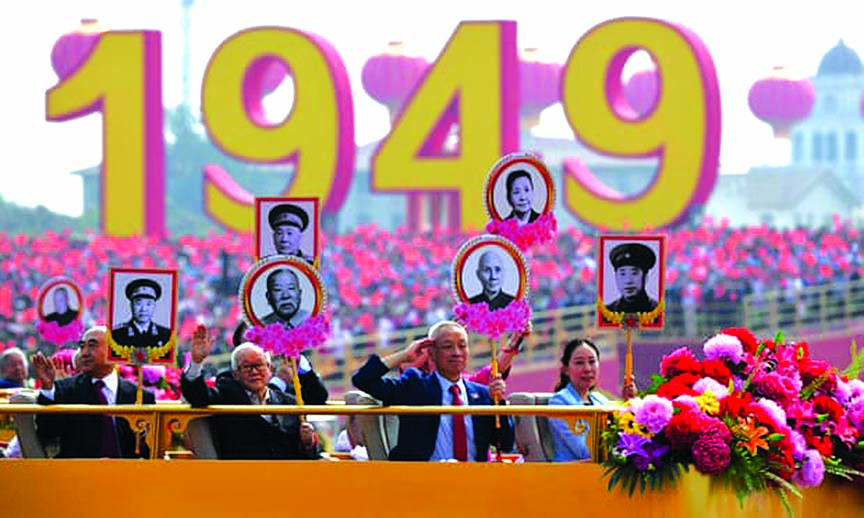
The Guardian :
China has celebrated 70 years of Communist party rule and its rise to global superpower status with a military parade showcasing the country’s technology, and a promise from President Xi Jinping that “no force can shake the status of this great nation”.
But huge and violent protests in Hong Kong cast a long shadow over Beijing’s carefully-choreographed projection of national unity and power.
China’s leadership past and present gathered on a viewing platform over Tiananmen Square on Tuesday to watch the military parade of 15,000 troops and weapons including new hypersonic drones and intercontinental ballistic missiles.
It was followed by a civilian parade, featuring tributes to national icons from founding leader Mao Zedong and the bicycles China was known for before it became an economic juggernaut, to the cities that have sprung up since the reforms of the 1980s.
Xi, who has spent years consolidating his grip on power to become perhaps the most influential leader since Mao himself, launched the celebrations with a speech that underlined China’s economic rise and the party’s role in fostering it.
“There is no force that can shake the status of this great nation. No force can stop the Chinese people and the Chinese nation forging ahead,” he said. Hewing to tradition, he wore a grey Mao suit and watched the parade from the same spot where Mao stood to announce the establishment of the People’s Republic of China on October 1, 1949.
Then China was so poor and battered by civil war that some of its 17 war planes were reportedly ordered to fly by twice, to make the airforce seem larger than it was. This year’s vast parade emphasised how much has changed.
It began with helicopters flying overhead carrying the communist party, state and military flags; the order offering a further hint at the Chinese leadership’s priorities.
For the party, this is one of the most consequential national day celebrations. The state it controls has now outlived the Soviet Union that was once its sponsor and supporter; Chinese officials for years have studied the collapse of the USSR in a bid to avoid a similar fate for the PRC.
Chinese troops march in formation past Tiananmen Square.
But the anniversary also comes as Beijing faces its most serious challenges since the 40th national day in 1989. That fell months after the military killed pro-democracy protesters in and around Tiananmen, plunging China into international isolation.
Today a trade war with the US threatens both the American and Chinese economies, there is growing international unease at Xi’s aggressive projection of power beyond China’s borders, and domestic problems belie attempts to unite China’s 1.4 billion people around the president’s vision of a “Chinese Dream”.
In addition to unrest in Hong Kong, and growing support for anti-Beijing politicians in Taiwan – the self-ruled island claimed by China – there is rising international concern about the detention of over a million people in far western Xinjiang region.

